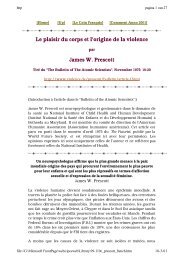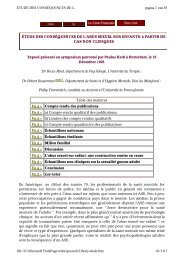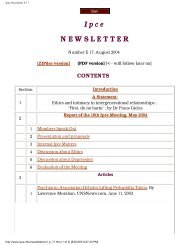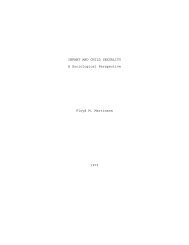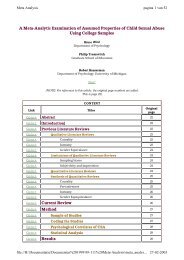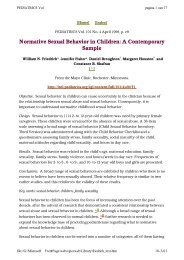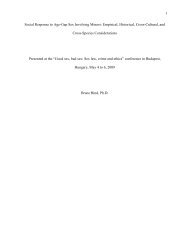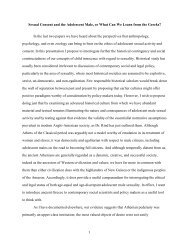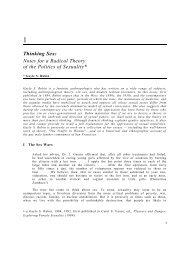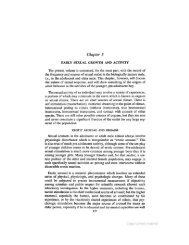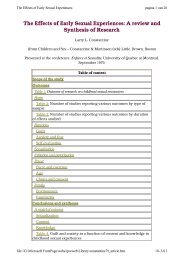PDF file - Ipce
PDF file - Ipce
PDF file - Ipce
You also want an ePaper? Increase the reach of your titles
YUMPU automatically turns print PDFs into web optimized ePapers that Google loves.
http://home.wanadoo.nl/ipce/newsletters/e_14/gie_ethics.htm<br />
[Home] [Articles & Essays - G] [Newsletter E 14]<br />
Ethics and human rights in intergenerational<br />
relationships<br />
‘First, do no harm’<br />
By Dr Frans Gieles<br />
In: <strong>Ipce</strong> newsletter E 14, October 2002<br />
Since the mid-1990s, <strong>Ipce</strong> members have held discussions about ethics. I have listened to the<br />
members. In this article, I will summarize the salient points of several opinions I have heard.<br />
Introduction<br />
“<strong>Ipce</strong> is a forum for people who are engaged in scholarly discussion about the<br />
understanding and emancipation of mutual relationships between children or<br />
adolescents and adults. In this context, these relationships are to be viewed from<br />
an unbiased, non-judgmental perspective and in relation to the human rights of<br />
both the young and adult partner.” (<strong>Ipce</strong> Mission Statement)<br />
Human rights and a reasoned discussion are a fundamental basis for the following ethical<br />
ideas about intergenerational relationships. One of these rights is that of choice of contacts and<br />
relationships with other humans. Contact is necessary for humans, and relationships can enrich<br />
life for both partners. This is the basis of reasonable ethical thought about intergenerational<br />
relationships.<br />
How much intimacy a contact or relationship has is in the first place a free choice for both<br />
partners. This may differ according to the individuals and the situation. There is only one<br />
general rule or principle that counts in every relationship: Do no harm.<br />
But there is more to say. What follows are no general rules, nor commandments on tablets of<br />
stone for eternity, but guidelines or thoughts, points to take into consideration, together with<br />
the local mores, laws and customs in a given society and era. The result, an ethical idea about<br />
an actual relationship, will differ with the people and the situation.<br />
In the course of years, <strong>Ipce</strong> members have developed the following main guidelines or<br />
principles.<br />
http://home.wanadoo.nl/ipce/newsletters/e_14/gie_ethics.htm (1 of 3) [10/16/2002 5:33:27 PM]



